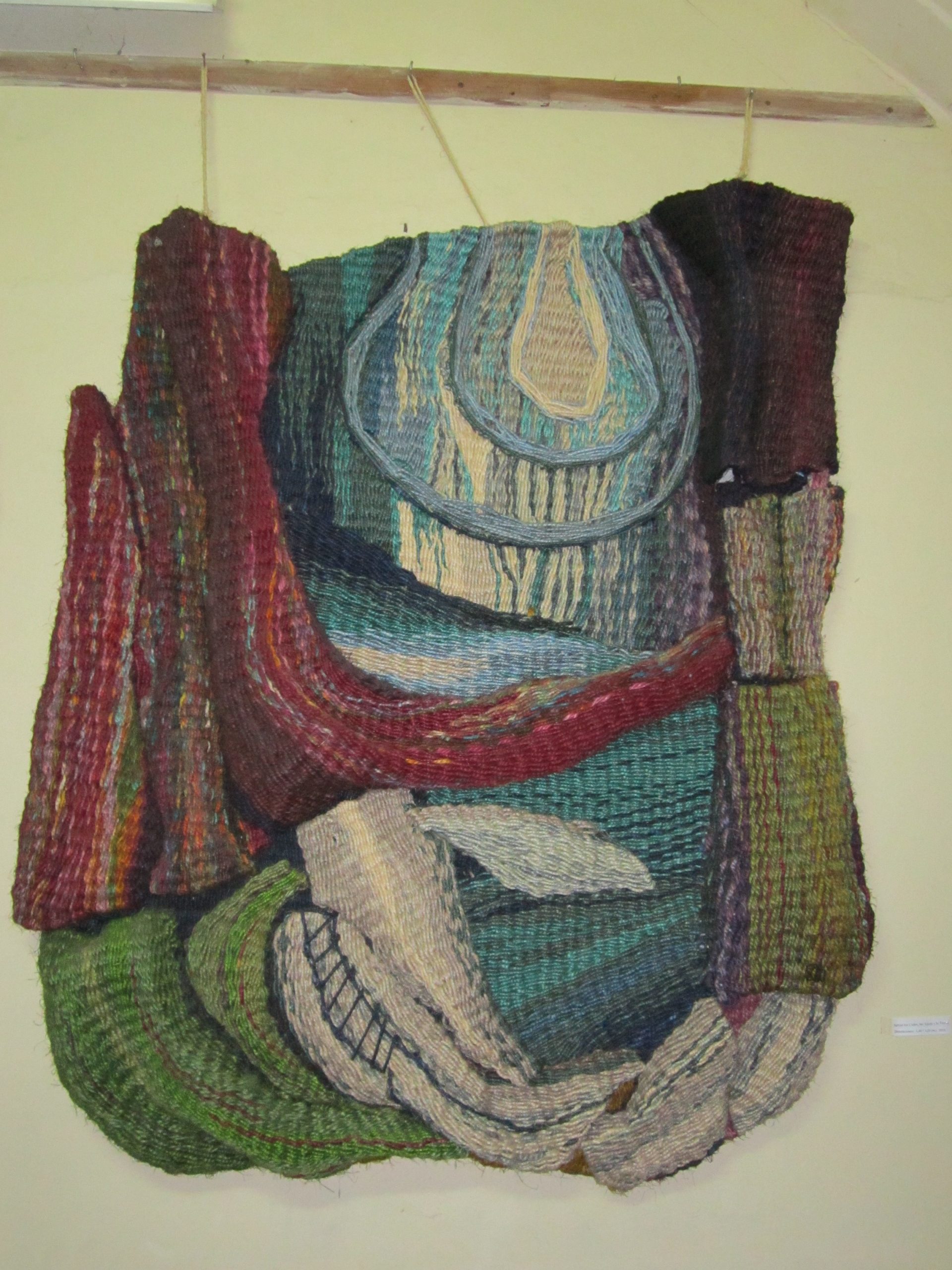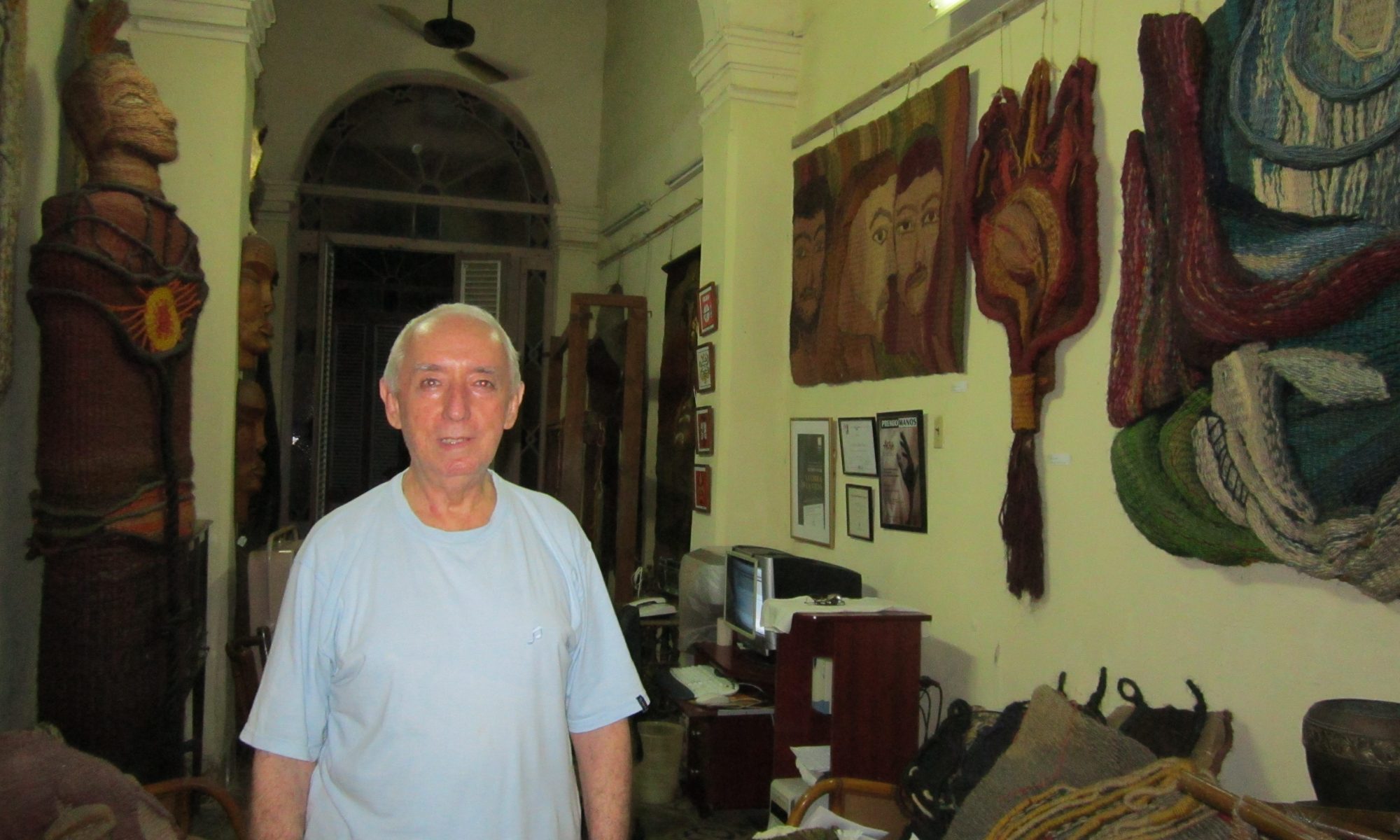Samuel Weinstein was a religiously observant Jewish Cuban whose father had been an accountant on the sugar estate in the 1940s where his Spanish-born mother worked when Samuel was born. Although illegitimate, Samuel nonetheless benefitted from his father’s legal recognition and desire that Samuel read Torah and be raised a Jew. When I first got to know him in 2004, Samuel had progressively lost his sight to the point of near total blindness. Fluent in computer programs for the blind and possessed of natural charm, however, Samuel had managed to market both his art and the bed-and-breakfast he co-owned with his partner Alberto Medina to art collectors and intellectually inclined foreign tourists through the internet. For years he had been had weaving, dying and looming ropes and textiles from natural henequen fibers on an ancient loom. Standing beside it and along the passageway in his home where he attended to guests on his computer and displayed some of his art, Samuel explained how the meticulous, step-by-step struggle of making his pieces mirrored the artisanal nature of life under the Communist Revolution. “Aquí nadie nunca puede tomar nada por sentado [One cannot take anything for granted here ever],” he said, smiling, “ni siquiera la vista [not even one’s sight].” From these painstakingly handcrafted materials, Samuel made three-dimensional sculptures like the sarcophagus-like being pictured here as well as stunning abstractions like Las Manos de Dios and the three male figures in Trinidad.




